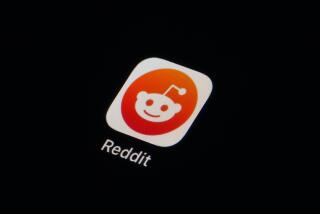IPO Market Is Beginning to Rebound
- Share via
After more than a year in the doldrums, the market for new stock offerings may be poised for a comeback, but there are signs that investors who were burned during the new-issue frenzy of recent years have become more discriminating.
Led by the red-hot energy sector and a broader market rally, initial public offerings, or IPOs, are once again a hot topic on Wall Street--with some of the more successful deals seeing strong first-day gains reminiscent of the late 1990s.
Because of the difficult market of recent months, investment bankers are bringing some of their strongest deals at lower prices. Those factors could make this a rewarding time for investing in first-time offerings, analysts said.
Indicating that the market may be on the rebound, May was the best month for IPOs in more than a year.
* Global Power Equipment Group Inc. (GEG) debuted in a $147-million IPO, and shares of the Tulsa, Okla.-based energy firm have risen 77% above the IPO price.
* Peabody Energy Corp. (BTU), one of the world’s largest private-sector coal companies, priced its $420-million deal at $28 a share Tuesday. The St. Louis-based company saw prices rise more than 30% on the first day, though the succeeding gains were more modest.
* Even some technology issues are doing well. Optical networking company Tellium Inc. (TELM) priced its May 17 deal at $15 a share. The Oceanport, N.J., company is up 53.6%.
“At the beginning of the year, everything was oil and energy, but now we are seeing some variety, and that’s encouraging,” said Ben Holmes, analyst with IPOPros.com, a Boulder, Colo., data firm.
Both retail and institutional investors are coming back into the market.
“Right now, retail investors have a great opportunity to get in at the offer price,” said Tom Taulli, author of “Investing in IPOs, Version 2.0.” “Everyone had written this market off as ‘No IPOs ever again.’ But we are seeing a comeback here.”
Still, the market is by no means booming.
So far this year, there have been just 38 IPOs, which raised $12.2 billion, compared with 170 deals raising $33.1 billion through May 25 of last year, according to Thomson Financial, a New Jersey data firm.
By one measure, performance is also lagging. The average first-day stock price gain for IPOs this year is a meager 12.8%, compared with 78.9% for the same time last year.
However, in terms of gains since the offering date, IPOs that have come to market this year are actually outperforming offerings from the same period of 2000 with an average price gain of 27.4%, compared with 24.1%, according to Thomson.
Some analysts, such as Richard J. Peterson, market strategist at Thomson, believe that the rumors of a comeback are greatly exaggerated. Peterson doesn’t expect things to improve until later this year.
“We’re seeing a blip on the radar screen of a couple of good deals,” Peterson said. “If these current gains were showing up last year, we’d consider them lackluster or underperformers. The deal flow still isn’t that strong.”
Energy-related offerings have dominated the IPO calendar this year, accounting for more than 40% of the money raised, according to Thomson. Technology offerings, meanwhile, have accounted for just a sliver of the deals this year, compared with about 80% last year.
Surprisingly, though, the best performer for the year is a tech IPO--Mountain View, Calif.-based Verisity Ltd. (VRST), a provider of privacy software, which is up 173%, Thomson found.
Priced at $7 March 21 by underwriter Robertson, Stephens & Co., the shares rose to just $8.38 on the first day--showing that first-day gains aren’t always indicative of a good deal, analysts said.
Analysts will be keeping a close eye on the IPO market in June, when at least one blockbuster deal is expected to be priced. There also are some potential bargains on the IPO calendar as well.
Watch for the $8.7-billion IPO from Kraft Foods Inc., maker of Kraft cheese, Oscar Mayer hot dogs and Oreo cookies, which is expected to be the second-largest IPO in history. The deal, a spinoff of Northfiel d Lake, Ill.-based Kraft from Philip Morris, is expected to come to market in mid-June.
Analysts predict the stock, to be sold by a large group of underwriters led by Credit Suisse First Boston, will be well-received despite some controversy about whether the company violated securities rules regarding marketing before the deal.
Smaller deals that analysts predict will attract interest next month include:
* Unilab Corp., a Tarzana firm that is one of the largest clinical testing labs in the country. Shares are expected to range from $14 to $16 and will be sold through Salomon Smith Barney. Unilab’s revenue was $95.3 million in the first quarter of 2001, compared with $79.3 million in the year-ago quarter, and profit increased to $3.17 million for the first quarter this year, compared with $1.5 million last year.
* The Princeton Review Inc., a 19-year-old New York-based provider of academic products and services. An estimated $65-million deal through lead underwriter Chase H&Q; gets mixed reviews from analysts; even though revenue has been rising, profit has not.
Given the mixed outlook, investors remain choosy.
“We have a comeback in this market, but it’s different than what we’re used to because of the tone of sobriety,” said David Menlow, president of IPO Financial Network Corp., a New Jersey data firm. “Investors are still battle-scarred from last year.”
Indeed, investors are showing signs of discrimination that were absent during the feeding frenzy that characterized the IPO market of the late 1990s and the first quarter of last year.
For example, Smith & Wollensky Restaurant Group Inc., the upscale New York-based restaurant firm, launched its IPO Wednesday and saw its price drop on the first trading day, a signal of a failed deal. The company’s weak financial condition, in addition to a minor league underwriter, CE Unterberg Towbin, were blamed for the failure.
“Investors are bright; they’ve learned a lot about IPOs in the past few years,” Taulli said.
(BEGIN TEXT OF INFOBOX / INFOGRAPHIC)
On the Comeback Trail
May was the best month in a year for first-time stock offerings. Although the market is still anemic compared with a year ago, some analysts think initial public offerings are starting to make a comeback. Figures for both years are from Jan. 1 through May 25:
No. of IPOs
2001: 38
200O: 170
*
Dollar value of IPOs
2001: $12.2 billion
2000: $33.1 billion
*
Average first-day price increase
2001: 12.8%
2000: 78.9%
*
Average gain, from offer price to current price
2001: 27.4%
2000: 24.1%
More to Read
Inside the business of entertainment
The Wide Shot brings you news, analysis and insights on everything from streaming wars to production — and what it all means for the future.
You may occasionally receive promotional content from the Los Angeles Times.










